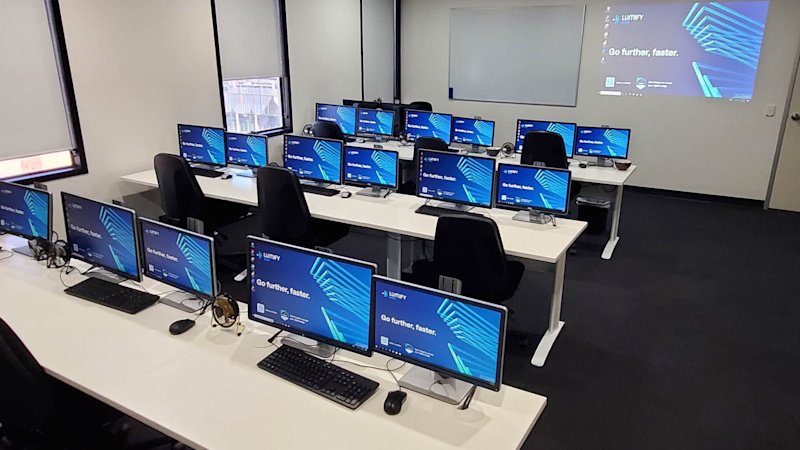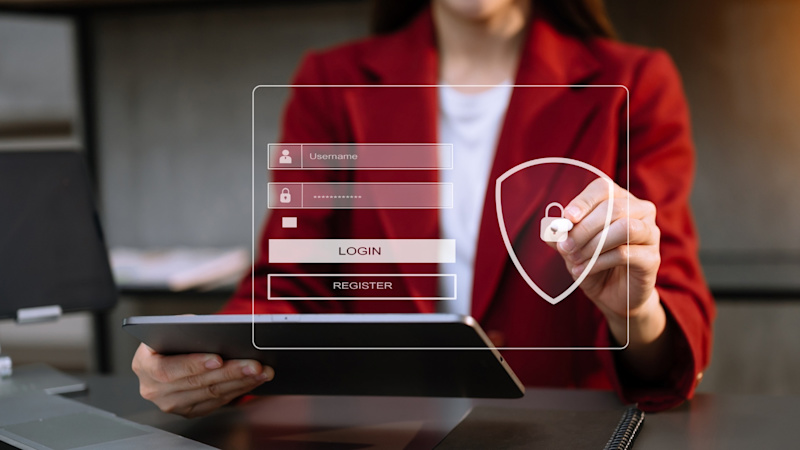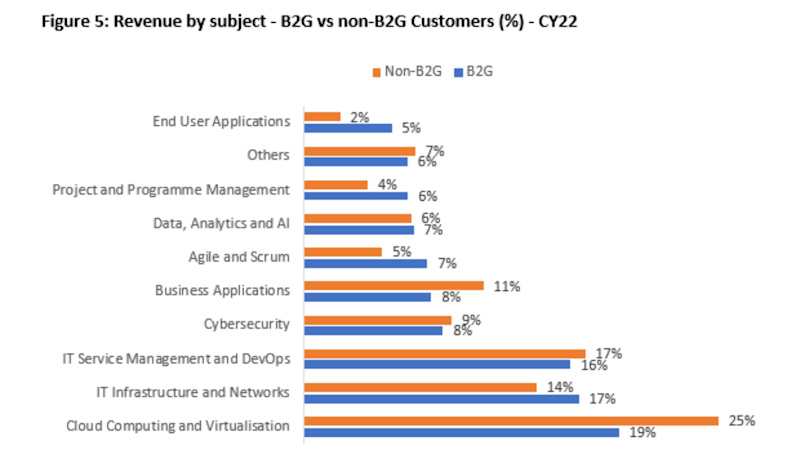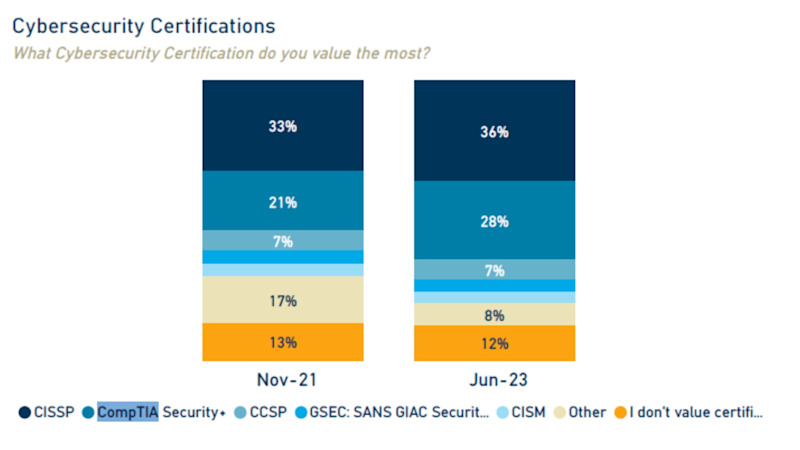The public sector faces unprecedented cybersecurity threats. With sensitive citizen data, critical infrastructure, and essential services at risk, investing in cybersecurity training has become imperative for public sector agencies in Australia.
One of our students, an IT specialist and public servant, shared feedback on his experiences with CISSP Training with Lumify Work:
“The course has given me an appreciation for how people in the private sector and other government agencies handle various situations; this includes governance and playbooks for security incidents. We also shared knowledge and experiences on tools and dealing with various third-party suppliers. My network of colleagues is a little wider now due to the training.”
Why Cybersecurity is important in Government
On the organisational level, we explore why the Government and cyber security should go hand in hand. And why such investments are crucial, backed by data highlighting the growing cyber risks and the potential impact of cybersecurity training on government entities.
Escalating Cyber Threats in the Public Sector
Cyber threats targeting the public sector have risen rapidly in recent years. According to its latest annual cyber threat report, the Australian Cyber Security Centre (ACSC) received 76,000 cybercrime reports last financial year, up 13% from the previous period. Over 2021–22, there were further examples of ransomware groups targeting critical infrastructure. For instance, the BlackCat ransomware group targeted Government and critical infrastructure organisations and the finance and construction sectors globally.Protecting Sensitive Data
It's critical to incorporate cybersecurity in public sector agencies. These teams hold a vast amount of sensitive data. A cyber breach can have severe consequences, leading to identity theft, fraud, and a loss of public trust. Cybersecurity training equips government personnel with the knowledge and skills to safeguard this critical data effectively.Safeguarding Critical Infrastructure
In addition to citizen data, public sector agencies often manage critical infrastructure vital for the country's functioning. Disruptions to transportation, healthcare, energy, or communication systems can have far-reaching consequences. Cybersecurity training empowers professionals to identify vulnerabilities in infrastructure and implement measures to safeguard against cyberattacks. This proactive approach ensures the continuity of essential services and enhances the nation's overall resilience.Mitigating Financial Losses
Cybersecurity incidents can lead to substantial financial losses for public sector agencies. Ransomware attacks, for example, have become increasingly prevalent and costly. According to SC Media by CyberRisk Alliance, the average cost of recovery (excluding the ransom itself) totalled US$1.82 million in 2023 and US$2.6 million if companies paid the ransom to restore data. Compare this with the US$1.6 million cost of using backups to restore data.Strengthening National Security
A secure public sector is integral to national security. Cyber threats often extend beyond monetary gains and may include espionage and cyber-espionage attempts targeting government entities. By providing cybersecurity training to public sector employees, agencies can contribute to a more secure digital environment. Well-prepared personnel can detect and respond to advanced persistent threats, protecting sensitive national information.Building a Cybersecurity Culture
Creating a cybersecurity-aware culture within government agencies is essential to fostering an organisation-wide commitment to cybersecurity practices. Cybersecurity training plays a vital role in nurturing this culture. Employees who are well-informed about cyber risks are more likely to follow security protocols, report suspicious activities, and actively participate in efforts to enhance cybersecurity.
As cyber threats continue to evolve and intensify, investing in cybersecurity training is no longer a choice but a necessity for public sector agencies. The data on escalating cyber incidents, potential financial losses, and the critical importance of protecting citizen data and national infrastructure all underscore the urgency of this investment.
Access Cyber Security Training with Lumify
Lumify Group provides ICT Skilling for public sector workers through Lumify Group and Strategic Advisory support focused on logistics, supply chain management, process and programme and learning and development through Lumify People.
Access cyber security training for all levels - from front-line staff and individuals starting their journey in cyber security to experienced professionals looking to enhance their skills.
Within our customers in B2G, we've seen a steady growth in cyber security course enrollments.
End-users can identify the common risks of day-to-day apps through cyber security awareness workshops like CyberSAFE. They can also safely learn to protect themselves and their organisations from security risks.
Those starting in cyber security can benefit from entry-level certifications. Some are platform agnostic, while others are anchored on specific technologies like AWS. These are designed to complement their transferrable skills with cyber security knowledge.
With 40% of Lumify's learners from the public sector, many are placing importance on CISSP and CompTIA cyber certifications.
(ISC)² Certified in Cybersecurity (CC) - 1-Day Workshop
Prove to employers that you have the foundational knowledge, skills and abilities necessary for an entry- or junior-level cybersecurity role. It will signal your understanding of fundamental security best practices, policies and procedures and your willingness and ability to learn more and grow on the job.
Security Engineering on AWS
Explore the security features of AWS essential services, including compute, storage, networking, and database services. You’ll also learn how to use AWS services and tools for automation, continuous monitoring and logging, and responding to security incidents.
CompTIA Security+
CompTIA Security+ is a global certification that validates the baseline skills necessary to improve baseline security readiness and incident response by applying current best practices for preventing and addressing today’s threats.
OffSec - Learn One Subscription - Self-paced
Ideal for anyone looking to start their cybersecurity journey or work through OffSec's advanced-level courses. Having access to labs for one full year allows the flexibility to balance life and learning while reducing stress and time pressure on students.
OffSec - Learn Enterprise - Self-paced
Learn Enterprise elevates your security workforce with unmatched skills development and hands-on learning experience. The labs serve as a battleground for penetration testers and enterprise teams to practice, learn, and improve in a realistic environment.
Lumify Learn - Certified Cyber Security Professional (CCP)
Prepare for a career in an industry with 0% unemployment. In less than six months, it will take you from zero industry experience to a job-ready, frontline cybersecurity role. In this interactive online course, students are guided by experts in the field who mentor them through the entire process, and students have the added advantage of taking the course content at their own pace.
Experienced professionals can get advanced training options focused on specialised areas like ethical hacking, penetration testing, digital forensics, or cloud security. These programs offer in-depth knowledge, advanced techniques, and practical scenarios to refine their expertise.
CompTIA Cybersecurity Analyst (CySA+)
This certification is for cyber professionals tasked with incident detection, prevention and response through continuous security monitoring. Gain skills in security operations, vulnerability management, incident response and management and reporting and communication.
CompTIA PenTest+
This is for cybersecurity professionals tasked with penetration testing and vulnerability management. Gain knowledge and skills for planning and scoping a penetration testing engagement including vulnerability scanning, understand legal and compliance requirements, analyse results, and produce a written report with remediation techniques.
Certified Information Systems Security Professional (CISSP®)
This course is the most comprehensive review of information security concepts and industry best practices. It focuses on the eight domains of the CISSP CBK® (Common Body of Knowledge) covered in the CISSP exam. Gain knowledge in information security that will increase your ability to successfully implement and manage security programs in any organisation or government entity.
With a wide range of training options available, individuals at every stage can acquire the necessary knowledge and skills to excel in the dynamic field of cyber security.
Access our brochure on available cyber security certifications. You can also contact our team to enquire about cyber security courses.









